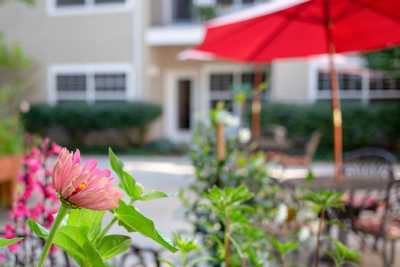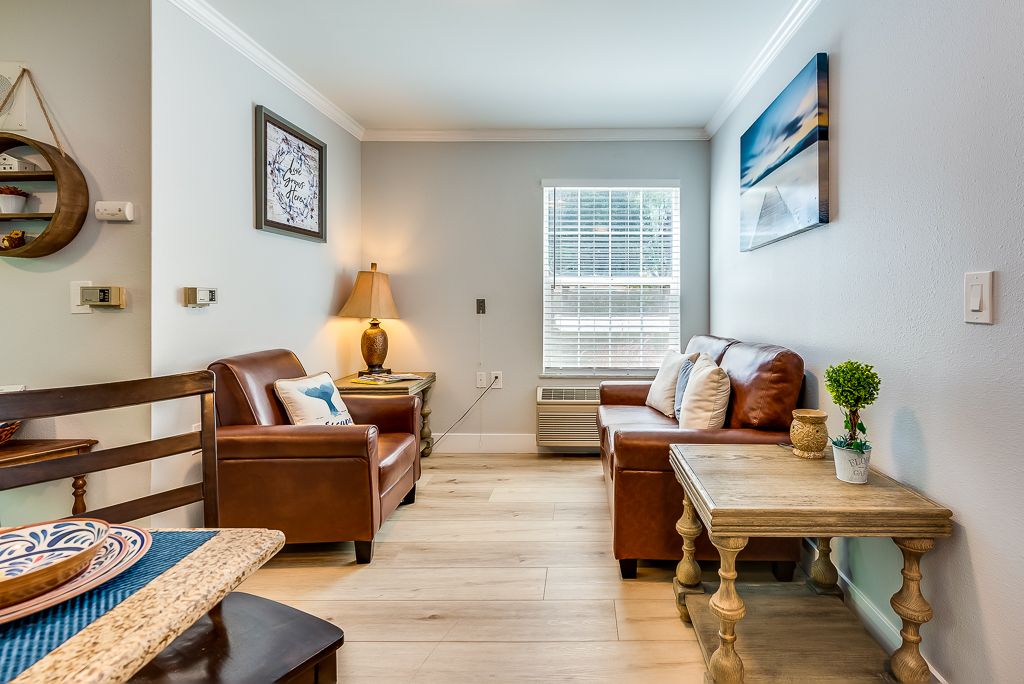Explore Personalized Memory Care Plans That Evolve with Needs
Wiki Article
Exploring the Relevance of Memory Treatment Services in Small Memory Treatment Houses
Memory care solutions play a crucial duty in boosting the lives of individuals with cognitive disabilities. In small memory care homes, the focus moves to individualized treatment customized to every homeowner's distinct demands. These intimate setups promote much deeper connections and a supportive neighborhood. However, the concern continues to be: exactly how do these atmospheres especially add to the emotional wellness of both locals and their households? Comprehending this vibrant exposes truth value of specialized memory treatment.Understanding Memory Treatment and Its Importance
Memory care is a necessary component in addressing the distinct demands of people with cognitive disabilities, such as mental deterioration and Alzheimer's disease. This specialized kind of care concentrates on producing a helpful and risk-free setting tailored to the obstacles dealt with by these people. Memory treatment centers employ experienced staff who comprehend the complexities of cognitive decline, providing personalized treatment that promotes self-respect and respect.Activities and routines are created to boost memory retention and cognitive function while guaranteeing safety and security and protection. In addition, memory care stresses social interaction, which can relieve feelings of isolation and boost emotional well-being. By fostering an organized setting, people can navigate their every day lives with even more confidence. Comprehending the relevance of memory treatment reveals its function in boosting lifestyle, making it possible for people to preserve as much freedom as feasible while obtaining the support they require.
The Advantages of Smaller Memory Care Residences
Smaller memory treatment homes use a more intimate setup that can noticeably improve the high quality of take care of citizens. With fewer residents, team members can develop more powerful partnerships, cultivating depend on and psychological connections. This personalized attention often results in boosted interaction, making it much easier for caregivers to recognize and fulfill the special needs of each citizen. On top of that, smaller sized settings typically minimize stressors and disturbances, promoting a soothing atmosphere for memory retention and emotional health. The design of smaller homes usually urges socializing among homeowners, enabling meaningful interactions that can deal with sensations of isolation. Moreover, these homes can adjust more swiftly to adjustments in care needs, guaranteeing that residents obtain timely assistance. On the whole, the personalized focus, lowered anxiety, and boosted social opportunities found in smaller sized memory treatment homes develop a caring setting that sustains both cognitive feature and emotional wellnessPersonalized Treatment Plans for Person Requirements
Individualized treatment strategies are crucial in attending to the one-of-a-kind needs of people in memory care. These plans typically consist of tailored assistance methods that improve daily living and advertise wellness. Furthermore, personalized activity interaction assists citizens attach with their rate of interests, fostering a sense of objective and joy.Customized Assistance Approaches
When developing tailored assistance techniques in memory care solutions, understanding the distinct needs of each person is basic. These strategies involve producing individualized care plans that cater to the details needs, choices, and capacities of citizens. By examining cognitive function, psychological health, and physical health, caretakers can develop reliable treatments that advertise convenience and self-reliance - small memory carehomes Charlotte. This personalized method warranties that each resident gets ideal support, enhancing their high quality of life. Normal evaluations and adjustments to these plans are crucial, as they enable caretakers to respond proactively to changing demands. In addition, engaging household participants in the planning process cultivates a collaborative environment, reinforcing the support network for individuals with memory challenges. Eventually, customized assistance methods are important for supplying reliable and compassionate memory careEmbellished Activity Engagement
Creating meaningful engagement via personalized tasks is vital in memory treatment solutions. Memory care homes prioritize individualized treatment strategies that deal with the unique demands and preferences of each local. These plans commonly include activities customized to residents' rate of interests, capacities, and cognitive degrees, enhancing their feeling of purpose and self-respect. By incorporating familiar routines, pastimes, and social interactions, caregivers can stimulate cognitive function and emotional health. Individualized task involvement not only promotes a helpful atmosphere yet likewise urges residents to preserve their independence. The energetic participation in these tailored tasks can result in boosted mood and lowered anxiety, enhancing the importance of an all natural approach in memory care that acknowledges each individual's trip and distinct experiences.Creating a Helpful Community Environment
While fostering a supportive area atmosphere is vital for those with memory treatment demands, it calls for intentional layout and thoughtful interaction. Creating such an atmosphere entails a combination of physical space and social links. Tiny memory care homes can benefit substantially from formats that encourage social communication, such as open typical areas and cozy event rooms. These styles advertise a sense of belonging and safety and security for residents.Moreover, employee play an essential function in growing this environment. Training caregivers to focus on compassion and active listening enhances connections and fosters depend on. In addition, involving households in care strategies and area activities can strengthen bonds and develop a network of support.Enhancing Social Engagement and Activities
Effective social interaction and activities are vital for boosting the health of locals in memory treatment homes. These interactions not only cultivate a feeling of belonging however additionally boost cognitive features, which can positively impact memory retention. Tiny memory treatment homes often provide customized programs tailored to small memory carehomes Charlotte the unique passions and abilities of each citizen, enabling for more effective and purposeful engagement.Activities such as art treatment, songs sessions, and group video games urge residents to get in touch with one another, promoting relationships and lowering sensations of isolation. Furthermore, integrating exterior tasks, such as gardening or nature strolls, can improve mood and overall health.These enriching experiences help citizens preserve a feeling of objective and joy in their lives. By creating an atmosphere that prioritizes social communication, little memory care homes significantly contribute to the emotional and psychological well-being of their locals, guaranteeing they feel valued and supported in their journey.Sustaining Families With the Journey
As households navigate the challenges of caring for an enjoyed one with memory problems, the support supplied by little memory care homes ends up being vital. small memory carehomes Charlotte. These homes supply not just specific look after residents however likewise important sources for households. By promoting a collective environment, little memory care homes urge open interaction, enabling families to share problems and share experiences.Support groups and academic workshops are typically offered, gearing up households with expertise and techniques to manage the complexities of amnesia. Such campaigns assist minimize feelings of seclusion, as family members get in touch with others encountering comparable situations.Moreover, little memory treatment homes usually offer personalized updates on locals' health, reducing family members' worries and helping them really feel associated with their enjoyed one's life. This holistic technique to support not just enhances the high quality of take care of residents however additionally encourages families throughout their psychological journeyThe Effect of Specialized Team Training on Care Quality
In tiny memory care homes, the quality of care is greatly affected by the training and experience of the personnel. Specialized training gears up caregivers with crucial skills to comprehend and address the unique demands of residents with memory problems. Expertise of dementia-related habits, effective communication techniques, and person-centered treatment methods enhances the capability of personnel to create a supportive environment.Moreover, experienced personnel are much better prepared to handle challenging scenarios, minimizing the possibility of conflicts and making sure a calmer ambience. This training cultivates a much deeper psychological link in between residents and caretakers, promoting trust and boosting overall well-being. Furthermore, specialized training can bring about greater task complete satisfaction among caretakers, lowering turn over prices and giving continuity of care for citizens. Ultimately, the investment in team education and learning substantially elevates the criterion of treatment, which is important for improving the lifestyle for people in small memory treatment homes.
Frequently Asked Questions
How Do I Choose the Right Memory Treatment Home for My Enjoyed One?
Choosing the right memory care home involves assessing individual demands, visiting centers, examining team experience, recognizing treatment options, taking into consideration location, contrasting expenses, and seeking suggestions. Each factor plays a vital role in making sure optimal care.What Is the Cost Difference In Between Huge and small Memory Treatment Facilities?
The price distinction between big and little memory care facilities can differ significantly. Normally, small homes may offer more customized care at a greater per-person rate, while bigger facilities often supply much more amenities at a reduced general cost.How Typically Can Households Go To Their Liked Ones in Memory Treatment Homes?
Households can usually see their loved ones in memory care homes as commonly as wanted, with many centers encouraging routine check outs to keep links and support psychological health, though specific plans might differ by home.What Specific Tasks Are Supplied in Tiny Memory Care Residences?
Little memory care homes commonly supply activities like arts and crafts, music treatment, gardening, workout classes, and cognitive games. These tasks are developed to engage homeowners, stimulate their minds, and advertise social communication among them.Exist Any Type Of Age Restrictions for Citizens in Memory Care Facilities?
Age limitations for homeowners in memory care facilities commonly differ by place and private facility plans. Generally, these homes satisfy older adults, frequently calling for citizens to be at the very least 55 or 60 years of ages. In tiny memory treatment homes, the emphasis shifts to individualized care tailored to each citizen's special demands. Memory care facilities employ qualified staff who understand the complexities of cognitive decline, providing individualized treatment that advertises self-respect and routines and respect.activities are designed to stimulate memory retention and cognitive feature while guaranteeing safety and safety and security. Smaller sized memory care homes supply an even more intimate setting that can significantly enhance the high quality of care for residents. Memory care homes prioritize individualized care strategies that provide to the unique requirements and preferences of each resident. As households browse the difficulties of caring for an enjoyed one with memory problems, the support provided by tiny memory care homes ends up being necessary.Report this wiki page